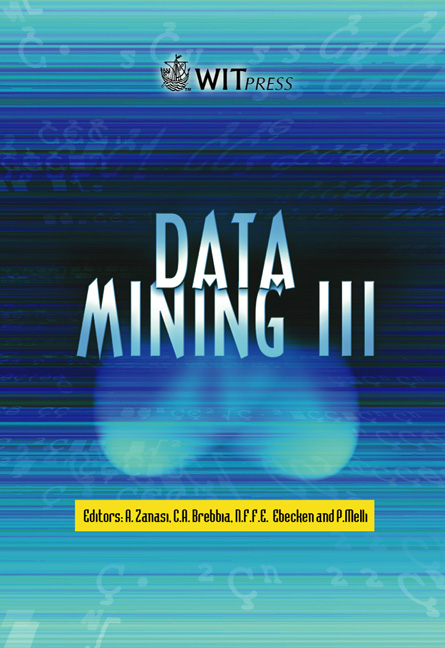The Inventive Power Of Learning Classifier Systems: A Contribution To Data Mining
Price
Free (open access)
Volume
28
Pages
Published
2002
Size
426 kb
Paper DOI
10.2495/DATA020191
Copyright
WIT Press
Author(s)
M F Santos, J Neves & V Alves
Abstract
The inventive power of Learning Classifier Systems: a contribution to Data Mining M. F. Santos1, J. Neves2 & V. Alves2 1 Departamento de Sistemas de Informacao 2 Departamento de Informhtica Escola de Engenharia, Universidade do Minho, Portugal Abstract The integration or the hybridisation of models and methods in the Data Mining (DM) processes is, in general, one way to optimise the interpretability, the validity and usefulness of the discovered patterns. Capturing and combining the best characteristics of each model makes possible to achieve better results and a fine-grained analysis. One’s work aims at the dissemination of the inventive aspects of the Learning Classifier Systems (LCS) as a contribution for the DM domain. A case study was conducted applying various techniques to predict the outcome of patients within Intensive Care Units (ICU). The results showed that the rules induced by the LCS can be used to improve the performance of the other approaches. The overall learning and discovery process is described, the patterns so for obtained, will be presented, dissected and explained. The authors’ work was supported by the ALGORITMI Research Centre, through a co-operative research grant. 1. Introduction The use of Learning Classifier Systems (LCS) [1] [2] [3] [4], a machine learning paradigm, as a DM technique it is an attractive insight. Those systems, unlike the older ones (e.g., ID algorithms and Artificial Neural Networks), generates hypothetical models, not implicitly included in the data, using a bio-inspired technique called Genetic Algorithm (GA). The data is then used to corroborate or refute it through reinforcement learning. The inventive aspects of the LCS can be captured and integrated into hybrid DM systems better suited for handling complex problems.
Keywords





